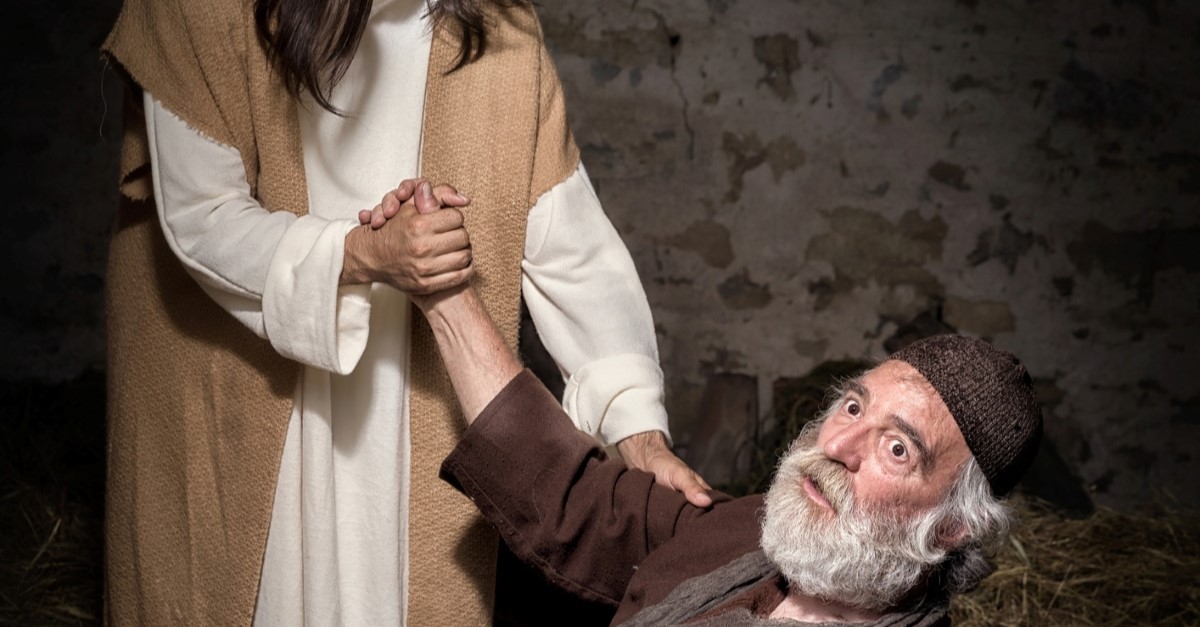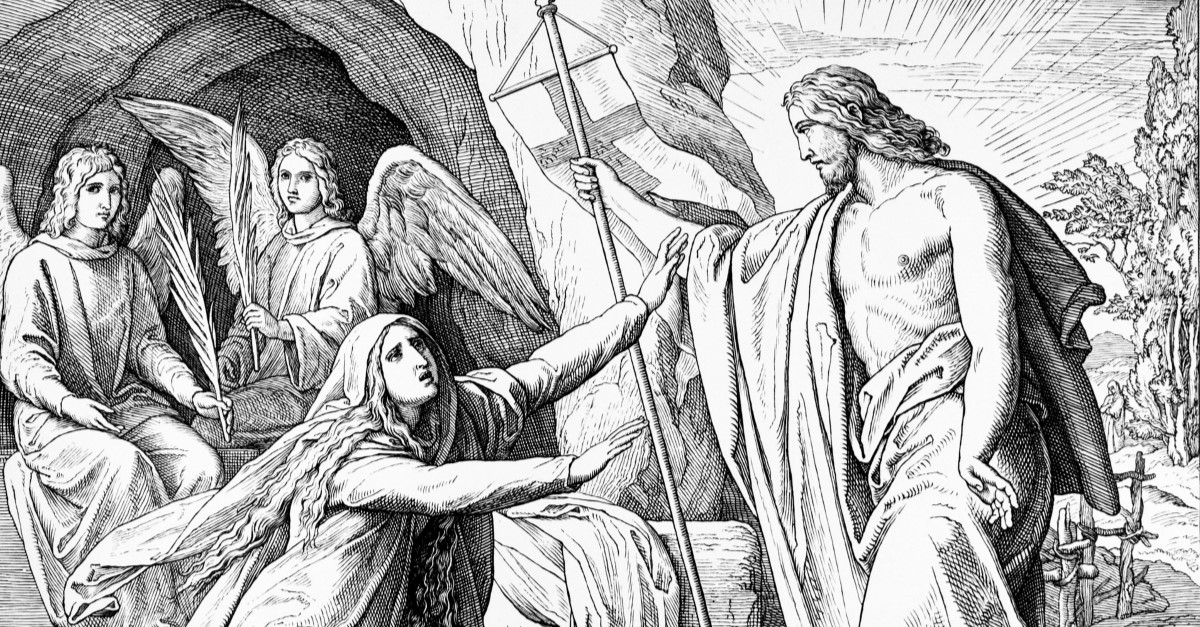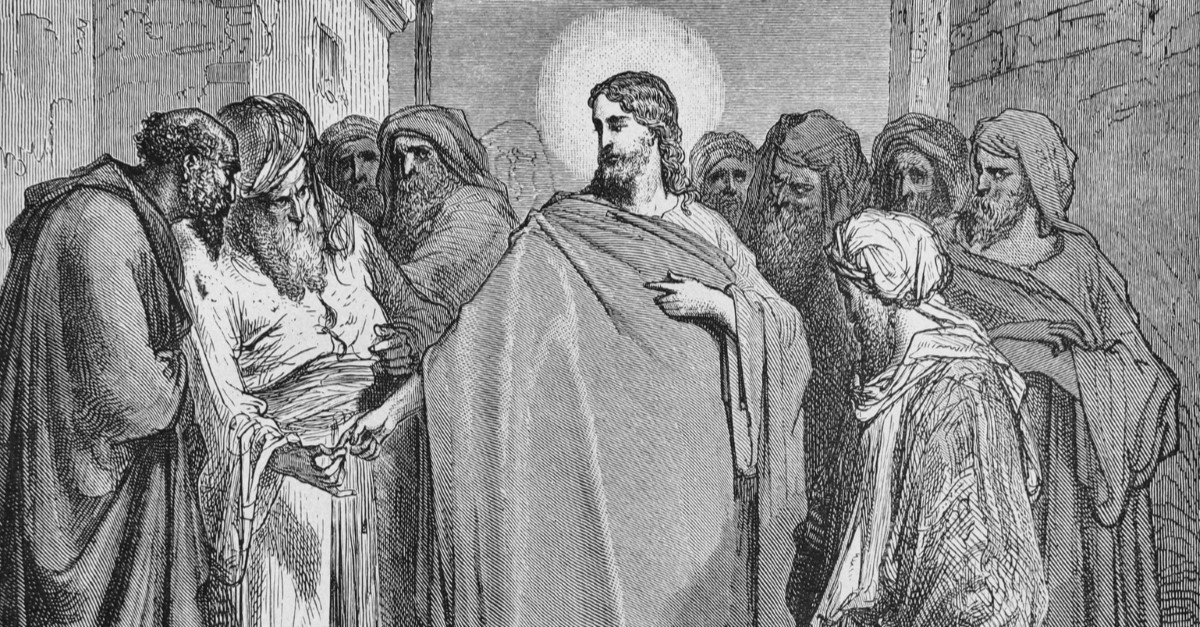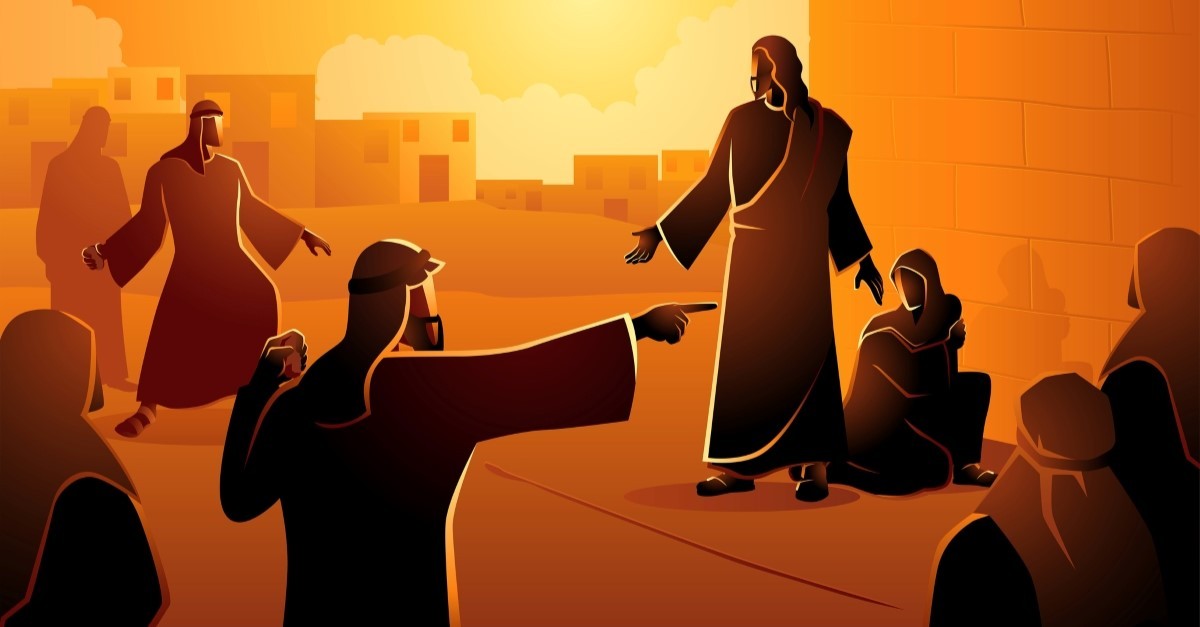
The most famous Bible verse worldwide says, “For God so loved the world, he gave his only begotten Son, that whoever would believe in him wouldn’t perish but have eternal life” (John 3:16).
The world. Every people group. Every person. This is so important to God; he won’t end this corrupt world until every corner of the planet and every nation can access the Gospel of the Kingdom (Matthew 24:14).
When the Son of God walked the earth, he encountered all kinds of people and showed them value in real and tangible ways. The same Jesus who walked the earth and loved every person lives in our hearts through the Spirit. We can love people as he does.
Here are nine things to learn from nine kinds of people Jesus valued when he walked the earth.
Photo Credit:©iStock/Getty Images Plus/camaralenta

1. The Poor
During his time on earth, Jesus consistently demonstrated deep care and concern for the poor, marginalized, and oppressed. He even declared this as part of his mission in Luke 4:19:
“The Spirit of the Lord is upon me, because he has anointed me to proclaim good news to the poor. He has sent me to proclaim freedom for the prisoners and recovery of sight for the blind, to set the oppressed free, to proclaim the year of the Lord’s favor.”
Jesus’ ministry was characterized by acts of compassion, healing, and provision for the poor and needy. He fed the hungry, healed the sick, and welcomed the outcasts, demonstrating God’s love and mercy to the needy.
Jesus’ example of valuing the poor teaches important lessons about compassion, justice, and stewardship. It challenges us to actively seek ways to alleviate poverty and address injustice. Just as Jesus identified with the poor, his actions in the Gospel underscore the biblical mandate to demonstrate love and solidarity with the poor and marginalized. It calls us to engage in acts of mercy, generosity, and advocacy on behalf of the poor, following Christ’s example of selfless service and sacrificial love.
Photo Credit:©Getty Images/trumzz

2. The Sick
While he ministered, Jesus showed profound compassion and care for the sick, demonstrating God’s love and healing power in tangible ways. One of the many verses highlighting this, Matthew 9:35, states, “Jesus went through all the towns and villages, teaching in their synagogues, proclaiming the good news of the kingdom and healing every disease and sickness.” Healing the sick coincided with proclaiming the Gospel of the Kingdom.
Jesus healed various ailments, including blindness, leprosy, paralysis, and chronic illnesses, demonstrating his authority over sickness and disease. Jesus’ healing miracles provided physical relief and symbolized the spiritual restoration and wholeness he offers to all who come to him in faith.
Christ’s value for the sick challenges us to follow his example by actively seeking opportunities to extend love, care, and support to the sick in their communities. This can happen through both medical care and supernatural healing, something we must be open to when dealing with those who are sick.
Moreover, Jesus’ emphasis on healing reveals salvation’s holistic nature, encompassing physical and spiritual well-being. It reminds us of God’s transformative love and hope in Christ, even amid sickness and suffering.
Photo Credit:©GettyImages/Studio-Annika

3. Women
Jesus challenged social norms with his remarkable value for women, affirming their inherent dignity and worth as beloved children of God. Luke 8:1-3 says when Jesus traveled proclaiming the good news of the kingdom of God, the disciples were not the only ones with them. Women who had been cured of evil spirits and diseases also followed: women like Mary Magdalene, Joanna (whose husband, Chuza, managed Herod’s household), and Susanna.
Women played an active role in Jesus’ ministry as both recipients of healing and supporters of his mission, which went against the Jewish traditions of their day. He treated women with dignity, respect, and compassion, often engaging them in meaningful conversations and affirming their faith and contributions to the Kingdom of God.
For us today, Jesus’ value for women is a powerful reminder of the equality and inclusivity of God’s Kingdom. It challenges us to confront biases and cultural stereotypes, advocating for women’s empowerment, dignity, and rights in all spheres of life. By valuing and affirming women as Jesus did, Christians can help to dismantle oppressive systems and create spaces where all people can flourish and fulfill their God-given potential.
Photo Credit:©GettyImages/gldburger

4. The Centurion
While he lived on earth, Jesus demonstrated he valued individuals from all walks of life, including Roman military officers. As Matthew 8 explains, the Centurion approached Jesus, pleading for Jesus to heal his suffering servant. The Centurion expresses humility and faith, acknowledging Jesus’ authority and power: “Lord, I do not deserve to have you come under my roof. But just say the word, and my servant will be healed” (Matthew 8:8).
Jesus is amazed by the Centurion’s faith and declares, “I tell you, I have not found anyone in Israel with such great faith” (Matthew 8:10). He then heals the servant from a distance, affirming the Centurion’s faith and demonstrating he had authority over sickness.
The Roman Centurion was an unlikely candidate for faith, at least according to Jewish standards. First, being a Gentile meant he was unclean. Second, centurions represented the Roman occupation and Jewish oppression—oppression which meant the Jews were, at best, second-class citizens if not outright slaves. Jesus teaches us how even the most “unlikely” people can come to faith. Further, this interaction prophesies the future Gospel of the Kingdom to all Gentiles: even nations once considered unclean could receive faith through Christ’s death and resurrection.
Photo Credit:©GettyImages/serpeblu

5. The Legalists
Jesus encountered Jewish religious leaders who opposed him and sought to kill him. This group, consisting of Pharisees, Sadducees, and others, challenged Jesus’ authority, escalating hostility. These tensions are mentioned throughout the Gospels, including Matthew 12:14, which states, “But the Pharisees went out and plotted how they might kill Jesus.”
Despite the leaders’ animosity, Jesus consistently demonstrated love, compassion, and a desire for reconciliation. He dialogued with them, addressed their concerns, and challenged their hypocrisy. Jesus’ interactions with these religious leaders underscored his commitment to calling people to repentance and inviting them into God’s Kingdom.
For Christians today, Jesus’ interactions with religious leaders remind us that humility, discernment, and grace matter when engaging with those who oppose or misunderstand the Gospel’s message. He would converse and even eat with them, even though they might have had ulterior motives. This teaches us to approach contentious situations with patience, wisdom, and a willingness to extend love and forgiveness, even to those who may reject or oppose those offers.
Through Jesus’ example, we should examine our attitudes towards those with differing beliefs or ideologies, including those who misuse religion or embrace legalism. We must also be humble enough to realize we can fall into false religion. We must ask God to help us avoid pride.
Photo Credit:©GettyImages/Vladi333

6. The Outcasts
During his earthly ministry, Jesus consistently demonstrated compassion for outcasts. One example is his encounter with the Samaritan woman at the well in John 4:1-42.
In this passage, Jesus disregards social barriers by engaging in conversation with the Samaritan woman—a scandalous act to the Jewish religious leaders and even to his disciples. The woman also had several husbands over time, which made her a disreputable figure. Beyond that, the Jews hated Samaritans because they were a mixed race of Jews and Gentiles and had developed a different religion combining Judaism with idolatry. Despite the barriers, Jesus treats the woman with dignity and respect, offering her living water and revealing himself as the Messiah.
This encounter teaches us the transformative power of reaching out to those considered outcasts. Like Jesus, we should transcend cultural, racial, and social divides. We should extend love, compassion, and acceptance to everyone regardless of background or status. Jesus valuing the outcast, like the woman at the well, is a powerful call to action. It shows the marginalized that in Christ, God accepts all who’ve been rejected. It challenges us to actively seek opportunities to minister to the marginalized, offering them hope, healing, and the life-transforming message of the Gospel.
Photo Credit:©iStock/Getty Images Plus/ukjent

7. The Condemned
Jesus showed mercy, forgiveness, and redemption to individuals for those condemned by society. One notable encounter is found in the account of the woman caught in adultery, as recorded in John 8:1-11.
In this passage, the scribes and Pharisees bring a woman caught in the act of adultery before Jesus, intending to trap him with a question about the Law of Moses. Instead of condemning the woman, Jesus responds with compassion and wisdom, challenging her accusers to examine their hearts and actions. He forgives the woman’s sins and encourages her to go and sin no more, demonstrating the transformative power of God’s grace and love.
Just as Jesus did, we should extend grace and forgiveness to those facing condemnation and judgment, underscoring the principle of non-judgmental love and acceptance. It reminds us to resist the temptation to condemn or ostracize others, recognizing that all people need God’s grace and forgiveness.
We accomplish this by realizing none of us deserve salvation from death and hell. We’ve all been condemned for our sins, and God delivered us through his immense love, not out of anything we did. For the next step, we realize we’ve been filled with the same Spirit of love and forgiveness, and we rest in his love to reveal it to others from our hearts.
Photo Credit:©GettyImages/rudall30

8. Tax Collectors
Another symbol of Roman oppression was the tax collector. In the Gospels, we specifically encounter Jewish tax collectors working for Rome. Jewish society despised these people for making money for the Roman authorities. Furthermore, tax collectors regularly used extortion to line their pockets.
During his ministry, however, Jesus demonstrated value and reached out to these tax collectors. We read about one such encounter in Luke 19:1-10, the story of Zacchaeus. Zaccheus climbed a sycamore-fig tree to see Jesus as he passed through Jericho. Despite the crowd’s disdain for tax collectors, Jesus singles out Zacchaeus, inviting himself to Zaccheus’ house. This act of acceptance and inclusion shocks the crowd. After Zacchaeus repents and declares he will restitute for all he stole and give his wealth to the poor, Jesus announces salvation has come to Zacchaeus’ house. He highlights the tax collector’s value and worth in God’s eyes.
In our modern political landscape, incredibly divisive and hateful, we can learn how to extend compassion and grace to those we see taking part in oppression or profiteering. Like Zaccheus, only a personal encounter with Christ can lead oppressors to repent and experience the transformative power of grace and redemption. Jesus even had a repentant tax collector, Matthew, among his 12 disciples.
Photo Credit:©iStock/Getty Images Plus/rudall30

9. The Zealots
Jesus also engaged and discipled Zealots—passionate advocates for Jewish independence who resisted Roman rule. Zealots often used violence, meeting hate with hate. One of Jesus’ disciples, Simon, was also a Zealot (Luke 6:15; Acts 1:13).
Just as Matthew had to stop being a tax collector and oppressor to follow Jesus, Simon had to cease being a Zealot. This didn’t mean Jesus excused or justified the Roman oppression; only that violence and hate weren’t Kingdom responses. Former tax collector Matthew and former revolutionary Simon found family and unity by submitting to Jesus, giving their lives to God, and spreading the Gospel.
In our modern culture, we see many kinds of people willing to fight against oppression, not always in healthy ways. Sometimes return hate for hate, prejudice for prejudice. This type of justice is punitive. God’s idea of justice is redemptive, very different.
Redemptive justice doesn’t seek to punish people but to redeem, reconcile, and transform them. Simon needed to learn this lesson. He could only do so through a more transcendent vision of the Kingdom by relating with Christ. We’re surrounded by those perpetrating injustice and others using more injustice to fight for freedom.
Only Christ shows a better way. We must learn how to invite both oppressors and revolutionaries together, transforming both into children of God from the Father. This is the Good News.
Photo Credit:©Getty Images/miriam-doerr

How Do We Value the People Jesus Valued?
We can say God loves all people, every individual, but do we? How do our own perspectives and backgrounds influence how we treat others in our community or the world?
To answer that question as we close, we all must ask ourselves one question: which one have you been?
Possibly, you’ve been more than one. We’ve all been part of these groups to some degree. And yet God reached beyond the obstacles of sin and rebellion to call us into an intimate, revolutionary relationship with Himself.
This call to relationship with him also requires a transformation of our interactions with others. Which one of these people do you avoid in life today? Which is God calling you to reach out to, speaking the truth in love to invite everyone into the same family with God as Father.
Photo Credit:©GettyImages/MangoStarStudio

Originally published Wednesday, 03 April 2024.
